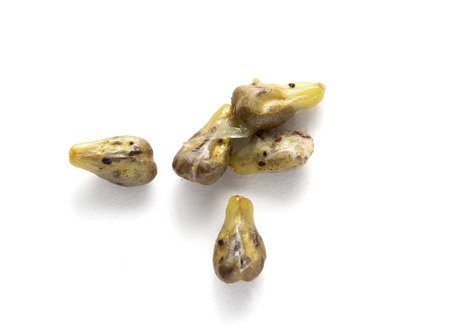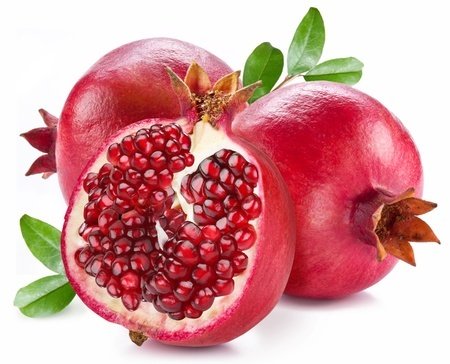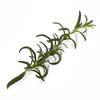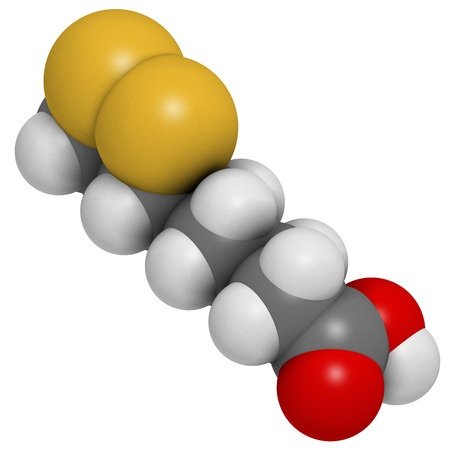The recommended daily dose contains:
- OPCs (oligomers of procyanidins) and PACs (proanthocyanidins) from grape seeds 260,000 mg
- Pomegranate (seeds) 240,000 mg
- Marjoram 200,000 mg
- Rosemary 200,000 mg
- Alpha-lipoic acid 60,000 mg
- L-Carnosine 30,000 mg
OPCs (oligomers of procyanidins) and PACs (proanthocyanidins) from grape seeds
OPC is an abbreviation for a group of substances, oligomers of procyanidins, which are found mainly in grape seeds. These bitter polyphenols are tasted when grape seeds are chewed. OPC is known to protect our cells as a strong and long-term effective antioxidant and to have an extremely positive effect on all symptoms of metabolic syndrome. OPCs develop their main antioxidant effect by neutralizing so-called free oxygen radicals. Free oxygen radicals are classified as harmful to our health in the long term because they attack and destroy cells or cell walls, enzymes, our DNA and more. This can lead to serious health problems. Free radicals are constantly in our body, but the body maintains a balance. Radicals appear mostly from environmental toxins, tobacco smoke, stress and exercise, but with obesity, chronic diseases or medication etc., more radicals can appear, leading to an imbalance, so the amount of free radicals in the body can increase. Free radicals are neutralized by antioxidants, which, however, are used up in the process, so they must be constantly supplied with food or with appropriate nutritional supplements. Grape seeds contain OPCs, PACs (proanthocyanidins), polyphenols, anthocyanins and catechins, which are also powerful natural antioxidants.
The PACs in grape seeds, in addition to being equally powerful antioxidants, improve insulin sensitivity and have a rejuvenating effect on cells. In this way, they protect against cardiovascular diseases, obesity and oncological problems.
|
Pomegranate (seeds)
The pomegranate (Punica granatum) has been known since ancient times as a remedy for many diseases. The pomegranate is full of very powerful and effective antioxidants - polyphenols and isoflavones, as well as ellagic acid, which, according to modern research, is the reason for the pomegranate's resistance against the development of cancer cells. Results of various studies show that the daily consumption of pomegranate by patients with prostate diseases has an extremely positive effect on the condition of the disease. A cell culture study also shows that even in late stages of prostate cancer pomegranate can still have a positive effect on cell structure. Research from 2007 and show that pomegranate extract can inhibit the growth of cancer cells in the lungs, as well as reduce the risk of prostate cancer.
|
Marjoram
Majorana hortensis is natural antioxidant, with anti-bacterial, anti-fungal and anti-inflammatory action. In addition to essential oil, marjoram contains plant flavonoids, tannins, bitter substances, glycosides and ascorbic acid.
|
Rosemary
In naturopathy, rosemary (Rosmarinus Officinalis) is used internally as a tea to stimulate blood circulation and against intestinal gas. It mainly acts as a stimulant for the blood supply to the abdominal organs and for the formation of gastric and intestinal juice. Rosemary tea also stimulates the formation of bile juice, acts as a diuretic, and also sharpens the appetite. The essential oil contained in rosemary has a strong antiseptic, antifungal and antimicrobial effect. The main active substances that produce these effects are carnosol, turpentinoids and rosmarinic acid.
|
Alpha-lipoic acid
Alpha-lipoic acid is one of the few nutritional supplements that cross the blood-brain barrier, i.e. can enter the extracellular fluid of the brain in the central nervous system. And since it is also fat-soluble, it manages to reach the entire nervous system. Alpha-lipoic acid is a free radical scavenger and a universal antioxidant, which also has an extremely useful quality - it is able to regenerate worn-out antioxidants in the body, such as vitamin C, vitamin E, coenzyme Q10 or glutathione.
Alpha-lipoic acid acts in many enzymatic reactions, mainly in oxidative decarboxylation as a coenzyme. With its reduced form - dihydrolipoic acid - alpha-lipoic acid is a biochemical redox system.
|
L-Carnosine
L-Carnosine is a 100% natural substance called a dipeptide consisting of two amino acids (beta-alanyl-L-histidine). It is often called a neuropeptide because of its brain-protective properties. Carnosine occurs naturally in healthy muscles, heart, brain, liver, kidneys and other tissues. Muscle contains about 20 micromoles/gram of dry weight. The more carnosine the meat contains, the more its shelf life is extended, because carnosine - this fantastic antioxidant - protects it from rancidity. Carnosine as a multifunctional dietary supplement is a relatively new discovery. It is an impressive physiological and 100% natural super-antioxidant with multiple biological functions - to name just a few: it supports muscle vitality, increases strength and endurance, protects cells from alcohol damage and inhibits protein denaturation, which is believed to be responsible for "aging", by protecting proteins and reversing the denaturation process. In summary, carnosine is called the "peptide of youth" because it slows down the natural aging process and helps us look younger for longer.
|




There are no reviews yet.